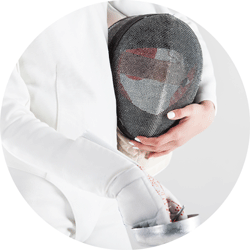Dr Dre is ahead of his game: the multiple Grammy winning rapper, record producer and label boss, actor and entrepreneur is without question one of the most influential names in music.
Dr Drai (real name, Draion Burch), on the other hand, is successful in quite different ways as a respected obstetrician and gynaecologist, media personality and author of such works as the snappily titled, “20 Things You May Not Know About The Vagina”.
So what brings these diverse doctors together? It seems Dr Dre took a chronic dislike to the prospect of Dr Drai securing a registered trade mark for his phonetically similar trading name on grounds that it would cause confusion. Emphasis was, it seems, placed on Dr Drai’s sale of audio books and podcasts and, due to the “entertainment nature” of those goods, the risk of consumers wrongly believing there is a connection between the two.
It is reported that Dr Drai argued no confusion was likely because, “Dr Dre is not a medical doctor nor is he qualified to provide any type of medical services”. Dr Drai took a scalpel to Dr Dre’s case in asserting that he was clearly not attempting to piggyback on Dr Dre’s name because, “I cannot be associated with anyone that has any kind of misogynistic speech because it’s a bad reflection on me as a doctor”.
The US Trademark Office ultimately dismissed Dr Dre’s challenge, but not without first having characterised his work as comprising, “harder-than-the-rest braggadocio to customary disses of ex-comrade Ice Cube and mind-boggling misogyny”. It found that Dr Dre had failed to show that consumers would be confused when Dr Drai’s mark was used in connection with the applied-for goods and services (presumably medical rather than musical in nature).
Dr Dre best forget about Drai.
Trade mark rights in the UK
From Compton back to the UK for a brief ride through trade mark rights; a trade mark owner aggrieved at an application to register an identical or similar mark can oppose it on the following grounds (amongst other things):
- It is identical with an earlier trade mark registered for identical goods or services.
- It is either:
- similar to an earlier trade mark registered for identical or similar goods or services
- identical with an earlier trade mark registered for similar goods or services; or
and the opposing party can demonstrate there is a likelihood of confusion on the part of the public, which includes association with the earlier registered mark.
- A well-known mark with a reputation may benefit from wider protection if use of an identical or similar mark would take unfair advantage of or be detrimental to its distinctive character or repute.




